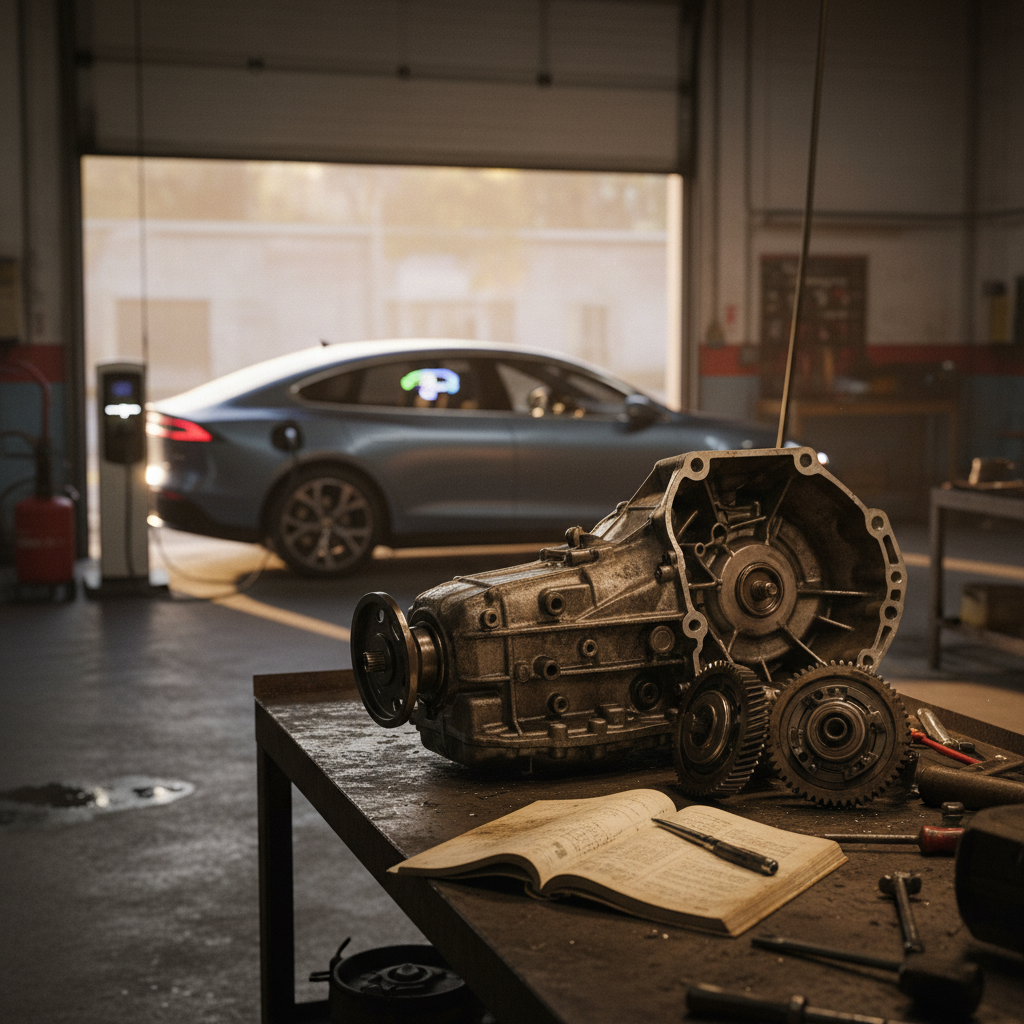If you own or are shopping for a Hyundai EV, it’s natural to wonder about Hyundai EV battery replacement cost. You’ve probably seen scary headlines about $20,000-plus quotes or EVs being totaled over battery damage. The truth is more nuanced: most Hyundai EV batteries are protected by strong warranties and will never need a paid replacement, but when they do, the numbers matter.
Key takeaway
Hyundai EV battery replacement cost: the real story
Let’s start with the big picture. When people ask about Hyundai EV battery replacement cost, they’re usually worried about a worst‑case scenario: the main high‑voltage battery pack failing outside of warranty. That pack is the most expensive single component in your Kona Electric, Ioniq 5, Ioniq 6, or future Hyundai EV.
Hyundai EV battery costs at a glance (US, 2025)
You will occasionally see eye‑popping quotes online, like $20,000+ for an Ioniq 5 battery in Canada, or $40,000+ for a complete pack replacement including structural work. Those cases are outliers, often tied to collision damage, insurance markups, or full structural assembly replacement rather than just the battery modules.
Don’t assume the first quote is final
Typical Hyundai EV battery replacement costs
Actual costs vary by model, labor rates, and whether the pack is new, remanufactured, or refurbished. Pulling together US estimates and global real‑world data, here’s what most Hyundai EV owners can expect if they’re truly paying out of pocket for a high‑voltage pack.
Estimated Hyundai EV battery replacement cost ranges (US, out of warranty)
These ranges assume no warranty coverage and no collision-related structural damage, just replacing a worn or failed high‑voltage pack.
| Model / Pack | What’s being replaced | Typical parts cost | Labor & misc. | Likely total |
|---|---|---|---|---|
| Kona Electric (64 kWh) | New or reman HV pack | $5,000–$7,000 | $1,000–$1,500 | $6,000–$8,500 |
| Ioniq Electric (28–38 kWh) | New or reman HV pack | $4,500–$6,000 | $800–$1,200 | $5,300–$7,200 |
| Ioniq 5 / 6 (77–84 kWh) | Pack modules or full pack | $6,000–$9,000 | $1,000–$2,000 | $7,000–$11,000 |
| Nexo / others | High‑voltage system work | Highly variable | $1,000+ | Case‑by‑case, often insurer‑driven |
Real‑world owner reports and independent analyses suggest most Hyundai EV high‑voltage battery replacements fall well below the headline-grabbing extremes.
New vs refurbished Hyundai batteries
Model-by-model Hyundai EV battery costs
What different Hyundai EV owners are likely to pay
Kona Electric, Ioniq Electric, Ioniq 5/6, and what’s coming next
Kona Electric
The Kona Electric has been on sale long enough that a few packs are reaching end-of-life in heavy‑use fleets.
- Typical pack size: ~64 kWh
- Estimated out-of-warranty pack cost: $5,000–$7,000
- All‑in replacement at a US dealer: typically $6,500–$8,500
Most US retail owners are still within battery warranty, so paid replacements are rare.
Ioniq Electric (first-gen EV)
The original Ioniq Electric used a smaller pack (28–38 kWh depending on year). That keeps parts cost lower:
- Estimated pack cost: $4,500–$6,000
- Installed total: roughly $5,000–$7,000
Because these cars are older, you’re more likely to see warranty-expired examples where replacement becomes a real decision point.
Ioniq 5 & Ioniq 6
The E-GMP platform (Ioniq 5/6, Kia EV6) uses larger, more complex packs and sometimes structural components.
- Module-level repair: often $3,000–$6,000
- Full pack swap: $7,000–$11,000 common at US rates
Extreme quotes you see online often relate to collision damage and insurance pricing rather than a straightforward wear‑and‑tear replacement.

For late‑model Hyundai EVs, you’re increasingly likely to see module‑level repairs instead of whole‑pack swaps. That’s a good thing for your wallet: technicians replace only the affected sections, keeping costs closer to a conventional engine overhaul than a full vehicle write‑off.
Hyundai and third‑party specialists are also beginning to embrace remanufactured packs and refurbished modules, especially as more high‑mileage EVs reach the secondary market.
How Hyundai’s EV battery warranty actually works
Before you worry about paying for a battery, you need to know how Hyundai’s hybrid/EV battery warranty works. In the United States, Hyundai promotes a 10‑year / 100,000‑mile warranty on the high‑voltage battery for most hybrid, plug‑in hybrid, and full battery‑electric vehicles.
- Coverage period: 10 years or 100,000 miles, whichever comes first, for the original vehicle owner (and in many cases for subsequent owners as well, always check your specific warranty booklet).
- What’s covered: defects in materials or workmanship that cause failure of the high‑voltage battery or excessive capacity loss (Hyundai targets no more than about 30% degradation during the warranty period).
- What’s not covered: collision damage, flood damage, abuse or improper modifications, and normal range variation due to temperature and driving style.
- Typical owner cost: $0 for the battery and labor when it’s a warrantable failure. You may pay for diagnostics or unrelated items, but the pack itself should be covered.
Pro tip when buying used
There are edge cases. For example, if the pack is damaged in a crash, the insurer may decide the car is a total loss rather than authorize a battery and structural repair. That’s not a warranty failure; it’s a collision claim decision.
Signs your Hyundai EV battery might need attention
High‑voltage batteries typically fade gradually, not overnight. But there are warning signs that it’s time to get your Hyundai EV looked at, even if you’re still within the warranty window.
- Noticeably reduced range at the same state of charge vs. when the car was new
- Large swings in range estimate (guess‑o‑meter) under similar driving conditions
- Repeated “check electric vehicle system” or battery‑related warning lights
- Rapid drops in state of charge under moderate driving
- Unusual heat, noise, or smells from the battery area (rare but serious)
Safety first
Ways to lower Hyundai EV battery replacement cost
If you do end up facing a Hyundai EV battery replacement outside warranty, you still have levers to pull before accepting the first number you see. Think of it the way you’d think about an engine replacement on a gasoline car, there are options besides “full-price new long block at the nearest dealer.”
Four smart ways to reduce what you pay
You may not control the parts price list, but you do control how you navigate the repair.
1. Confirm warranty and recalls
Start by verifying whether the issue is covered:
- Ask the dealer to check warranty status by VIN.
- Ask specifically about battery-related recalls or service campaigns.
- Request the capacity test report if range loss is the concern.
Plenty of owners have had batteries or major components replaced at no charge when the problem was properly documented.
2. Ask about module-level repair
On newer Hyundai EVs, technicians can sometimes replace only bad modules instead of the entire pack.
- Module repair can cut costs dramatically.
- Labor may be similar, but parts are much cheaper.
- Ask the advisor: “Is a module‑level repair possible here?”
3. Compare dealer and independent EV shops
Not every independent shop is ready for high‑voltage work, but a growing number specialize in EVs.
- Dealer: OEM parts, full diagnostic support, higher hourly rates.
- Specialty shop: may offer remanufactured or refurbished packs at lower cost.
Always confirm that any shop you use is properly trained and insured for high‑voltage work.
4. Loop in your insurer wisely
If the battery was damaged in a crash or road‑debris incident, it’s an insurance claim, not just a repair.
- Get written estimates from more than one Hyundai dealer.
- Ask your insurer to review high quotes carefully.
- In borderline cases, a fair repair cost can keep the vehicle from being totaled.
Battery replacement vs. buying a different EV
When battery costs bump up against the value of the vehicle, you reach a fork in the road: replace the pack or pivot to a different EV entirely. The right answer depends on your specific car, how you use it, and what else is on the market.
When a battery replacement makes sense
- Your Hyundai EV is otherwise in excellent condition with low accident history.
- The quote is comfortably under 40–50% of the car’s current market value.
- You love the vehicle and plan to keep it several more years.
- You can obtain a new or remanufactured pack with a solid warranty.
When it’s smarter to switch EVs
- The battery quote approaches or exceeds half the car’s value.
- The vehicle has other looming issues (rust, high miles, body damage).
- You’re already considering a larger, newer, or different‑brand EV.
- You can apply the money toward a used Hyundai EV with a healthier pack.
How Recharged can help
Checklist before you approve a battery replacement
Pre-approval checklist for Hyundai EV battery replacement
1. Confirm warranty and in-service date
Verify the original in‑service date, mileage, and specific battery warranty terms for your VIN. If you’re inside 10 years/100,000 miles, push hard for warranty coverage where appropriate.
2. Request a written capacity test
Ask the dealer for the official state‑of‑health or capacity test result. This is what Hyundai uses to determine whether range loss qualifies for warranty replacement.
3. Get more than one estimate
Obtain quotes from at least two Hyundai dealers, and, if possible, a reputable EV‑specialty shop. Make sure each quote clearly separates parts, labor, shop fees, and any structural work.
4. Ask about repair options
Clarify whether module‑level repair, refurbished packs, or remanufactured options are available, and what warranties each carries.
5. Compare cost to vehicle value
Look up your Hyundai’s current market value in its actual condition. If the battery quote is nearly half the car’s value, consider whether upgrading to a different EV is more rational.
6. Involve Hyundai and your insurer
For borderline, high‑dollar cases, open a case with Hyundai customer care and make sure your insurer reviews the estimate. This is especially important if collision or road‑debris damage is involved.

FAQ: Hyundai EV battery replacement cost
Frequently asked questions about Hyundai EV battery costs
Bottom line on Hyundai EV battery costs
Hyundai’s strong 10‑year/100,000‑mile battery warranty means most owners will never face a big Hyundai EV battery replacement cost. When out‑of‑warranty replacements do happen, the realistic range for a high‑voltage pack is usually more like $6,000–$10,000, serious money, but not the automatic death sentence some headlines suggest.
If you’re staring at a high quote, slow down, get multiple opinions, and compare the repair cost to the real‑world value of your vehicle. And if you decide it’s time to move on, Recharged can help you trade in, sell, or step into a used Hyundai EV with verified battery health and transparent pricing, so the only surprise is how easy EV ownership can be.



